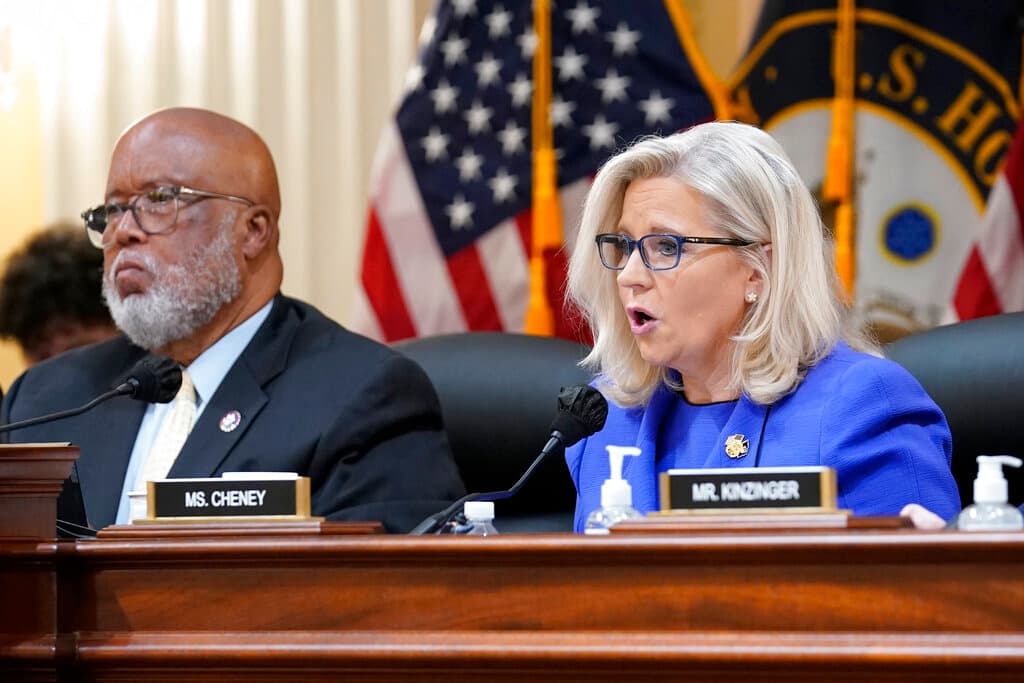Is the January 6 Committee Legitimate?
The House just withdrew a subpoena it had issued rather than risk having the committee’s legitimacy weighed in federal court.

Is the House select committee investigating the January 6 riot duly constituted? We ask because the House just withdrew a subpoena for evidence from the Republican party rather than having the committee’s legitimacy weighed in federal court. This leaves the panel’s very legality in question as it prepares to reopen hearings later this month that could see it refer President Trump for criminal prosecution.
This happened in a case, Republican National Committee v. Nancy Pelosi, that was pending before a panel of riders of the District of Columbia Circuit of the United States Court of Appeals. The dispute arose when the committee demanded records from Salesforce, a digital communications vendor used by the GOP, in a search for information on “Republican donors, volunteers, and supporters,” the party said, as well as its “deliberative processes.”
Handing over this information, the Republicans said, would give the Democratically-controlled committee “sensitive and proprietary data over more than a two-month period” — what the party calls “an all-access pass to confidential RNC political strategies and the personal information of millions of its supporters.” Yet putting aside what appears to be a naked grab for partisan advantage, serious constitutional questions were beckoned.
After a federal district court allowed the subpoena, the Republicans appealed the issue to the Circuit riders. The subpoena, they said, was not valid because the request was not “in furtherance of a legitimate task of Congress” — that is to say, lawmaking. More importantly, the GOP said, the riders “must answer” what it calls a “more fundamental” question — is the committee “validly exercising the legislative power at all?”
Plus, too, the GOP says Speaker Pelosi defied the letter of the law when she chose the panel members. The enabling resolution called for her to “appoint 13 Members” to the committee, “5 of whom shall be appointed after consultation with the minority leader.” Yet after rejecting some GOP picks, Ms. Pelosi “chose to assemble a nine-member body,” without any “consultation.” Letting that slide is, the GOP maintains, “a wholesale judicial abdication.”
The Republican appeal set the stage for a lively debate at the Circuit Court. Yet the January 6 committee, instead of mounting a defense of its bona fides, instead dropped its subpoena altogether. Particularly because the committee was so eager to get rid of the matter that it promised never to try to get the subpoenaed material again, the Circuit riders were left little choice but to declare the matter moot — meaning end the case.
The judges seemed a bit frustrated. At least, they note that, by withdrawing its subpoena, the January 6 committee “deprived us of the ability to review” the case. They marked that the appeal “would have presented” what they saw as “important and unsettled constitutional questions.” The court made no finding on the motives of the January 6 committee in retreating, but it certainly looks to us as if the solons feared the outcome of the appeal.
It’s noteworthy, in our opinion, that few Americans would know these issues from following the news. Scant newspaper coverage has appeared of the constitutional dimension of the January 6 committee’s retreat on this head. The best story on the court’s action is by John Solomon of Justthenews.com, which noted how the circuit riders “took issue with the House Democrat committee for playing essentially a game of hurry up, then wait.”
In any event, the RNC, by standing up to the members of the January 6 panel, has pointed a light — a laser — on a problem. Speaker Pelosi and the Democrats didn’t try to build consensus for the scope of a committee that might have investigated January 6 in a fair, bipartisan way, allowing, say, cross examination and a sharing of the evidence. Instead they chose, in effect, to try Mr. Trump in the legislature, itself a violation of the prohibition against attainder.

